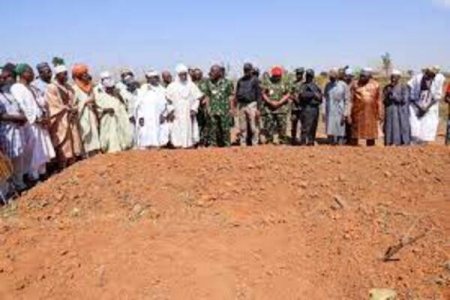
In a shocking development, discontent simmers within the Nigerian military as some officers of the Nigerian Air Force (NAF) express frustration over the recent airstrikes on Tundun Biri in the Igabi Local Government Area of Kaduna State. The strikes, carried out by the Nigerian Army, resulted in a tragic toll, with over 120 reported dead and more than 60 injured as villagers gathered to celebrate Maulud on a Sunday night.
NAF officers, angered by the decision to deploy army drones for the operation, argue that their specialized training and superior equipment make them better equipped to handle precision air operations. One officer emphasized, "Every service or security agency has its dedicated role(s), even though all of us underwent the same training. The truth is, air troops are more conversant with air operations than any other troops, whether in flying drones or attack helicopters."
Amidst the internal strife, reports suggest a lack of synergy between the army and air force, exacerbating the frustration among officers. Some army officers dismiss the dissent, asserting that flying drones is a routine task for them. "The fact that we made a mistake this time around doesn't mean we are not capable of flying a drone against enemies. We're capable and have the capabilities to fly it," one army officer confidently declared.
However, insider sources reveal that the tragedy in Tundun Biri might have been avoidable. Before the airstrikes, army officials reportedly hinted at air force officials, seeking counsel on the operation. The air force officials cautioned them, noting that the gathering did not appear to be that of terrorists. "They told them (the army) that terrorists don't converge in large numbers within a community. Also, wherever you see terrorists or bandits coming together, you will see many motorcycles. There were no motorcycles at the site of the Maulud on that day... It was really unfortunate," the source disclosed.
As the nation grapples with the aftermath of the Kaduna airstrikes, questions regarding communication breakdowns and decision-making processes within the military linger. The incident underscores the critical need for enhanced coordination and collaboration among different branches of the armed forces to prevent such tragic mistakes in the future.
Source: Daily Trust


![[VIDEO] Heart-Wrenching Scene: Elderly Man Breaks Down in Tears Over Skyrocketing Fuel Prices in Nigeria](/data/attachments/203/203552-d9d429f8fbfa8a8c2ed1532232aa2c58.jpg)

